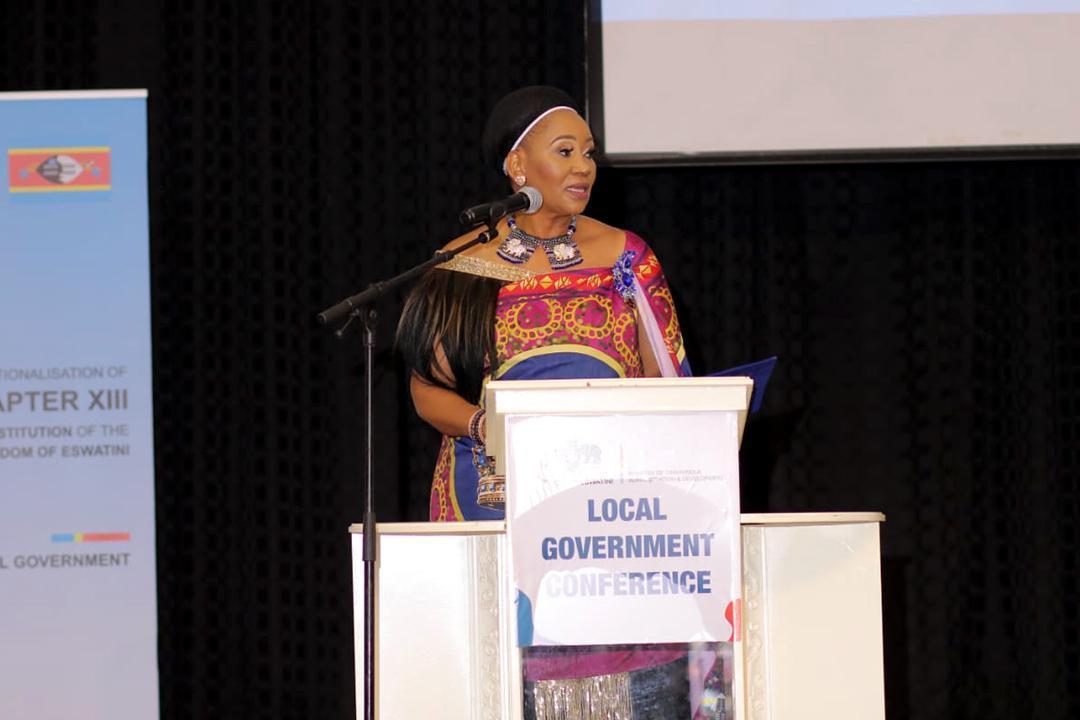Africa-Press – Eswatini. “We do not begin, we continue.”
These were the words that set the tone as Senate President Lindiwe Gwebu-Dlamini took delegates on a powerful constitutional and cultural journey at the opening of the Eswatini Local Government Conference.
Addressing a full house inside Esangweni Hall, the Senate President delivered what many described as a deeply reflective and forward-thinking presentation on legislative priorities, urging the Kingdom to fully embrace the call to build one unified system of local government, firmly rooted in the Tinkhundla model.
“This is not about replacing who we are, it’s about legislating what we’ve always known,” she said. “Long before the language of ‘local government’ was introduced, Emaswati practised participatory governance in its most authentic form.”
Referencing Eswatini’s historical duality of governance, the coexistence of indigenous traditional systems and Western urban administrative structures, Gwebu-Dlamini called for the urgent harmonisation of both.
“Two systems, existing side by side, but often disconnected in law and practice,” she said. “This is the urban–rural dichotomy that we are convened here today to resolve, not by erasing either, but by harmonizing both into a single, integrated system that reflects our identity and serves the needs of every Liswati.”
She said the local government legislation must not only formalise this integration but honour the values and dignity of every citizen.
“We must legislate for a governance system that protects traditional leadership, empowers urban and rural authorities equally, and ensures that women, youth, persons with disabilities, and marginalised groups are full participants.”
With conviction, she added, “The legislation we are called to develop is not for the comfort of politicians and officials, but for the dignity of our people.”
She painted a vivid picture of the citizens who must benefit from this legislation: “For a mother in a rural chiefdom seeking healthcare, for a youth in an urban township seeking employment, for a farmer seeking access to markets, for a child seeking quality education, our work must serve them all equally.”
Gwebu-Dlamini emphasised that political unity, financial commitment, and sustained capacity-building were critical to making the new system work.
“The passage of legislation is not the end, it is only the beginning,” she said. “We must move forward as one nation, united in vision, committed in action, and anchored in the wisdom of our traditions.”
Ending her address with a bold pledge, she said, “We shall work hand in hand with His Majesty’s Government, the House of Assembly, the Traditional Leadership, and all sectors of society to ensure that the Local Government Bill reflects both the spirit of our Constitution and the soul of our Kingdom.”
“Let history record that it was in our time that Eswatini achieved the full unity of its governance system, blending tradition and modernity, unity and diversity, past and future, into one strong, sovereign Kingdom.”
Her address closed a memorable first session on Day One of the conference, which also featured an enlightening presentation by Attorney General Sifiso ‘Mashampu’ Khumalo, who clarified that Chapter XIII of the Constitution is focused on improving service delivery, not removing powers from traditional leadership.
Delegates were also moved by the insights of Professor Kwamena Ahwoi from Ghana, who explored the politics of harmonising urban and rural governance systems.
The day wrapped up with a robust panel discussion on the Tinkhundla system led by Chief Dambuza, Mangomeni Ndzimandze, and Ambassador Mathendele Dlamini.
As the conference continues, the message is clear: this is not just lawmaking, it is legacy building.
For More News And Analysis About Eswatini Follow Africa-Press







